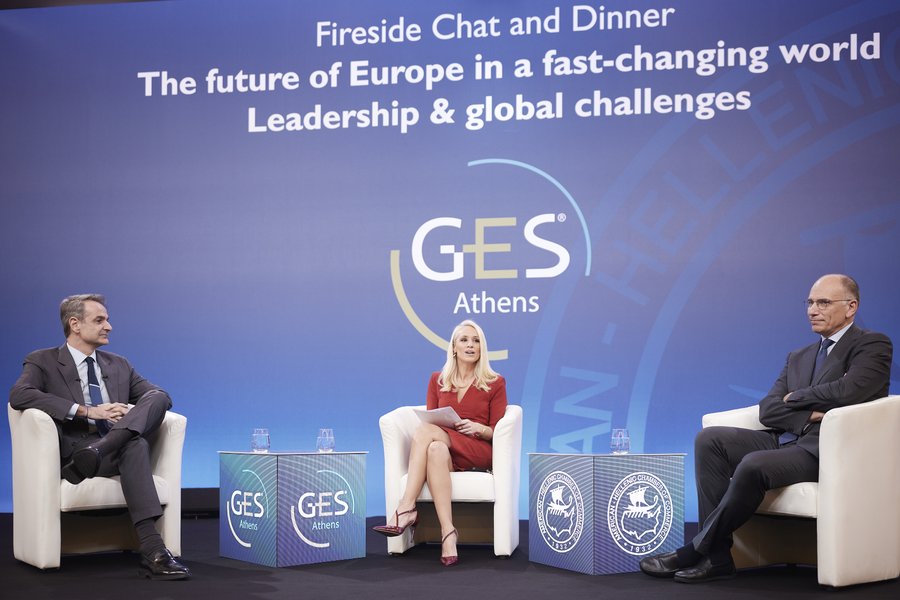In a discussion with Enrico Letta, former Italian Prime Minister, at an event hosted by the Hellenic-American Chamber of Commerce, Greek Prime Minister Kyriakos Mitsotakis addressed the rise of far-right parties and the "woke" agenda.
Regarding gender, Mitsotakis stated his belief that there are two genders, male and female, a view he attributed to biology. He contrasted this with the situation in the US, suggesting that the extreme positions of the "woke" movement, particularly prevalent in American universities, had fueled a backlash resulting in the rise of the far right. He asserted that this phenomenon is less pronounced in Europe and doesn't pose the same challenge in Greece.
Mitsotakis expressed confidence that his center-right New Democracy party has successfully marginalized far-right parties in Greece, preventing them from significantly impacting national discourse or participating in coalition governments. He explicitly ruled out any post-election coalition with parties to the right of New Democracy if his party wins a majority.
On the potential for a US-EU trade war, Mitsotakis adopted a cautious approach, recalling Trump's 2016 rhetoric. However, he also viewed the situation as an opportunity for Europe to strengthen its common defense capabilities and increase defense spending, describing it as a "geopolitical COVID moment"—a turning point demanding decisive action. He advocated for greater budgetary flexibility in defense spending and the creation of a substantial Defense Recovery Fund. A government source indicated that European discussions on increased defense spending are gaining momentum, with even traditionally hesitant countries like Finland engaging in joint defense projects. The informal Brussels summit in February and the March summit will be crucial steps in this process. Mitsotakis highlighted Greece's strong position in this debate, being a top NATO contributor to defense spending as a percentage of GDP.
Finally, regarding Greek-Turkish relations, government sources suggest a period of wait-and-see, with the Supreme Cooperation Council postponed until at least March, pending the clarification of the situation in Washington.
Stay updated with the latest news from Greece and around the world on greekcitytimes.com.
Contact our newsroom to share your updates, stories, photos, or videos. Follow GCT on Google News and Apple News.


